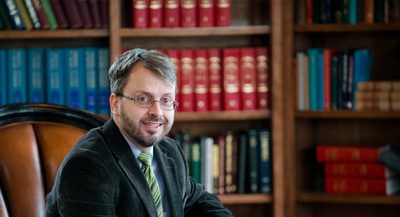
William Woolfitt
Fiction
William Woolfitt is the author of three poetry collections: Beauty Strip (Texas Review Press, 2014), Charles of the Desert (Paraclete Press, 2016), and Spring Up Everlasting (Paraclete Press, forthcoming). His fiction chapbook The Boy with Fire in His Mouth (2014) won the Epiphany Editions contest judged by Darin Strauss. His poems, short stories, and essays have appeared or are forthcoming in Blackbird, Image, Tin House, The Threepenny Review, AGNI, and Gettysburg Review, among others.
Fruit Jar
I leaned close, braved the flail of Mama’s brown-furred tongue. I could almost untangle what words she sputtered. Look in the woods, Suse, she might have said. On the Jamison place, around the old pond. Bee balm, boneset. Oswego tea. I remembered her telling Lilian and Ethel and me that she had learned the heal-alls from her grandmother, that when we were older, she meant to teach us what common leaves and lowly stems and potent roots we should keep in our larders. There was so much she had not told. In Mama’s fragments of speech, I wanted to hear that I was the one she had chosen, that she meant to pass her store of knowledge to me.
I wiped Mama with wet cloths cooled in the springhouse; poured for her all the water she could drink; steeped pennyroyal leaves from the ravine, made a brew, hoped that it would help her sweat and heave. I kept her windows open day and night, and I cut off her chestnut hair, coiled it in a wreath. When the doctor finally came, he put steamed flannel on her heart, hot tins on her feet. I saw Mama struggle and twitch, gasping for breath like a landed fish who should be cut from its nets, and let go.
~
Mama kept her knobby fingers under the sheet, hiding how they writhed like creatures she couldn’t tame. I listened for her fought-for breaths, for a memory of what she and I were like when I was her only-born and my siblings were futures away. I listened for story-scraps that I might take in like a food, so to carry in my body some trace of her. I didn’t get much. A little bit about how she met my father at a pie supper. How my sister Ethel, two years younger than me, was born with one eye that did not open. And how two years after that, Lilian was underweight at birth, so tiny she could fit inside my father’s cupped hands. How my brothers born after Lilian had colicky spells, colds, and measles.
Sometimes I snapped at Mama when she offered me these stories, the same stories as always, nothing new that I might savor. I told her to conserve her strength, get some sleep. I could fill in where she left off: Ethel’s eye was just a pucker of flesh until Brother Marsh blew on it and spoke in tongues. And now Ethel was prettiest, Mama had taught her to sew, her dresses always had some trick with ribbon, some unexpected garnish, and all the boys at church looked at her, only at her. And Lilian was just as dainty and fine and musical as a chickadee. And my brothers had rallied from their ailments, after Mama sang to them and dosed them with onion juice and sassafras to bust colds and build the blood. Mama did not lose any of us. I was always her helper; at her bidding, I pushed a baked onion through a sieve, and pinched the beetles that gnawed her flowers, and when there was a tree she couldn’t climb, I wrapped myself around the trunk, hauled myself up, and went into the high branches to bring her a cluster of waxy red berries.
~
There was nothing like speech after she gasped, only a shallow breath, and then an awful silence. And then another weak breath. Mama’s face was hot and gray, a drift of ash. Maybe that was my inheritance, the little that was mine.
~
In the summer before she got sick, Mama had wanted to go mushroom hunting on High Germany. She asked me to accompany her, told Ethel to watch the boys while we were gone. I was so pleased. Mama and I took for a path the earth-scars where the logs had been skidded down Blue Knob. We passed through a field of waste, picked our way around the blast-holes where the felled poplars, too massive to move, had been shot with dynamite, then dragged to the skidways. We knelt on the banks of a sawdust-choked stream and lapped its cloudy waters.
The fever struck Mama, spared me. Perhaps I was spared for this work, for declining bodies, and for dead. Mama’s last bath turns easeful when I whisper fruit jar, bobbin, locust-husk—the part I tidy after the spilling out, the slow unwinding, the flying away.
